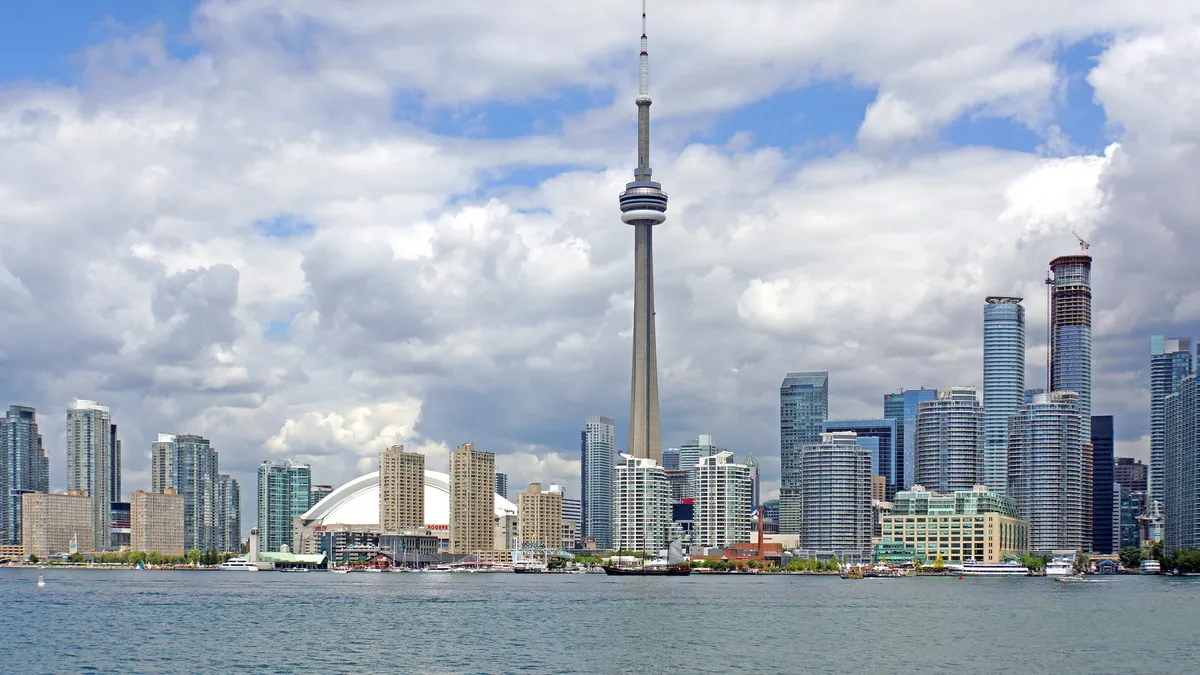UPDATE: Toronto officials, including Canadian Prime Minister Justin Trudeau, announced Tuesday that Sidewalk Labs has been selected as the official partner on a "digital city" venture dubbed Sidewalk Toronto, according to Fast Company and others. Sidewalk CEO Dan Doctoroff, Waterfront Toronto CEO Will Fleissig, and Alphabet Executive Chairman Eric Schmidt also spoke at the kick-off event.
"This is not some random project for us," Alphabet’s Schmidt said, as reported by Fast Company. "It’s the culmination of 10 years of thinking about the ways technology can improve people’s lives."
Dive Brief:
- Sidewalk Labs LLC, a subsidiary of Alphabet Inc., is nearing a deal to develop a 3 million-square-foot "digital city" project in Toronto that would showcase a variety of smart and connected infrastructure and buildings, according to The Wall Street Journal.
- Waterfront Toronto put out an RFP for the 12-acre site, dubbed Quayside, in March and found Sidewalk Labs' bid to be "most compelling," as reported by WSJ. There is also potential for the site to be expanded to an adjacent 750 acres, however that development is projected to cost tens of billions of dollars.
- Waterfront Toronto and Sidewalk executives will continue to seek support from various stakeholders before moving forward with the project. Approval of the Waterfront Toronto board is anticipated this month.
Dive Insight:
According to its RFP, Waterfront Toronto is seeking a partner to help build a "vibrant, climate-positive and prosperous community," a mission that falls right in line with Sidewalk's mission. The Alphabet-owned urban innovation organization, founded in 2015, touts that it is "reimagining cities from the internet up." The concept isn't new to the industry by any means, yet with the backing of a multi-billion dollar tech giant, it's likely that Sidewalk Labs will prosper at a more rapid pace.
Some media is teasing the idea that Toronto may now become the world's first "smart city," yet crowning Toronto with this superlative is misleading. The interpretation of what a smart city really is varies from person to person — some professionals say it's a city where citizens can easily connect with the government, others say it's a city where tech is leveraged to improve quality of life — but there's no one-size-fits-all definition for "smart." That's not to say, though, that Sidewalk Labs' disruption of the industry will go unnoticed. The company even joined forces with Transportation For America (T4A) last year to bring transit innovation to 16 U.S. cities, including Denver, Seattle and Austin, TX.
In an opinion post on The Globe and Mail, University of Toronto professors speculated that Sidewalk Labs' focus on Toronto may indicate a trend of tech companies moving away from U.S. cities due to the "Trump effect." While this theory has its holes, Canada has recently welcomed the new facilities of two major companies — Facebook opened an AI lab in Montreal, and Google's DeepMind opened an AI lab in Edmonton — strengthening the belief that Canada may be the new tech frontier.












